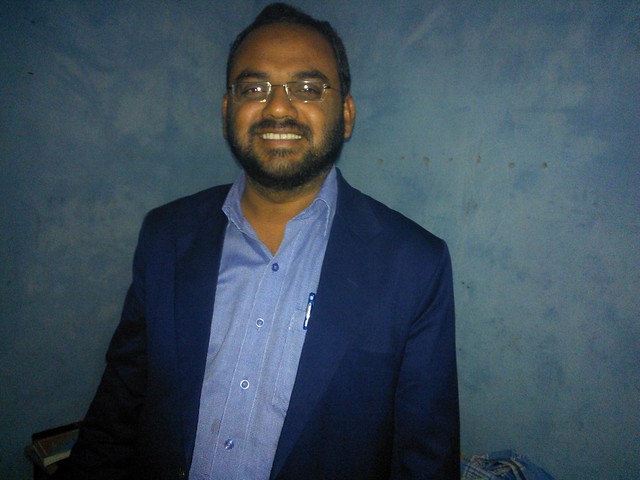Introduction and compilation by M Reyaz, TwoCircles.net,
The controversy over listing as non-schools the madrassas in Maharashtra has once again fuelled the debate over madrassas, which in past have been variedly dubbed as ‘den of terrorism’, ‘custodian of backwardness’ etc. The Arabic word ‘madrassa’ simply means an ‘institution of learning’ and may imply both a high school as well as a University.
While maktab literally implies a primary school, many people confuse both to be one and the same. Questions are also being asked about how many engineers or doctors these madrassas have produced and the relevance of the ‘medieval’ institution. Certainly madrassa system needs reform from within, particularly to offer students the options to study science subjects too.
And the positive sign is that many are already doing it.
According to Sachar Committee Report, roughly 4 % of the total Muslim students study in a madrassa. While it is true that a large number of madrassa graduates become either religious teachers or Imams in mosques, that’s only one half of the story. Increasingly several of them also simultaneously or after completing madrassa education, enroll into formal educational system and go on to become lecturer in universities, doctors (many of them BUMS, but also MBBS), engineers, journalists (not just Urdu, but also in English, Hindi, media etc.). States such as West Bengal, Assam, Bihar, UP, etc. also have respective State Madrassa Boards and their certificates are equivalent to CBSE’s Senior Secondary level.
TwoCircles.net here profiles some of the madrassa graduates who are breaking barriers and shattering stereotypes to work in different walks of life. This will hopefully become an ongoing project, where we shall try to add on to the list:
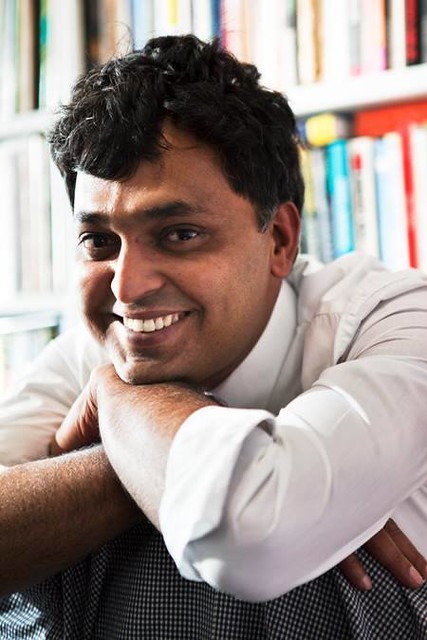
Dr Irfan Ahmed
Dr Irfan Ahmed, Academician: Irfan Ahmad is currently Associate Professor of Political Anthropology at the Institute for Religion, Politics and Society, Australian Catholic University, Melbourne. Earlier, he taught at Monash University, Australia; Utrecht University and University of Amsterdam, Netherlands after completing his PhD from Leiden University.
Irfan is the author of ‘Islamism and Democracy in India: The Transformation of the Jamaat-e-Islami’ (Princeton University Press, 2009) which was short-listed for the 2011 ICAS (International Convention of Asian Scholars) Book Prize for the best study in the field of Social Sciences.
In the past, he wrote for the Urdu media and magazines such as Qaumī Avāz, Qaumī Tanzīm, Rāshtriya Sahārā, Sangam, Chāoñ, Gulābi Kiran, and contributed to leading South Asian English magazines and semi-academic journals such as Himal: South Asian Magazine, Mainstream, The Radical Humanist, The Third Concept, Business Today and World Focus. He actively contributes to important debates in such media as Al-Jazeera (English), The Times of India, Open Democracy and The Hindu.
Irfan was initially educated in Madrassa Islāmīa ‘Arabīa (Islamic Seminary) in his native village of north Bihar, before he went to formal schools. He later came to Jamia Millia Islamia from where he completed BA and then went to JNU for MA and M Phil. (Read more about him here)

Dr Wasimur Rehman (Courtesy: ummid.com)
Dr Wasimur Rehman, Civil Service: Coming from an undeveloped district of Siddharth Nagar in Uttar Pradesh, Rehman had made a history by becoming first Deoband cleric to clear Civil Services Examination in 2008. After studying at local maktab in his village, he went to Madrasa Ehyaul Uloom in Gonda which is affiliated to Darul Uloom Deoband. Rehman completed five years of eight-year course of Fazil here and for the remaining three years, at the end of which he was to be awarded with a degree, he moved to Darul Uloom Deoband in Saharanpur.
Son of a traditional Hakeem, Rehman later studied BUMS from Jamia Hamdard in Delhi and then completed MD from AMU. He then prepared for the civil service examinations and cracked it in 2008 with a rank of 404. (Read the extraordinary story of Wasimur Rehman here)
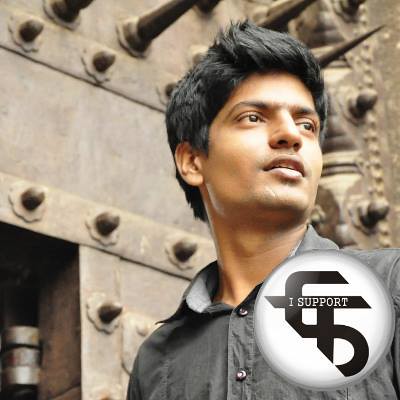
Arshak MA,
Arshak MA, Media: Arshak is a graduate in Islamic Jurisprudence, from Al Jamia Islamiya, Shanthapuram, Kerala. He simultaneously also studied BC in Economics (Distance mode) and then completed Masters in Mass communication and Journalism and Post Graduate Certificate in Television Programming from the prestigious Film and Television Institute of India (FTII), Pune.
“After I completed high school my parents persuaded me to get an admission in Al Jamia as they knew the institution’s ability of imparting education of both Islamic and modern system,” he wrote to TCN. “At Al Jamia, we were taught fundamental topics on Islam along with modern subjects such as English literature, Economics and Computer,” he informs.
Arshak has worked with several advertising companies in Kerala as creative director.
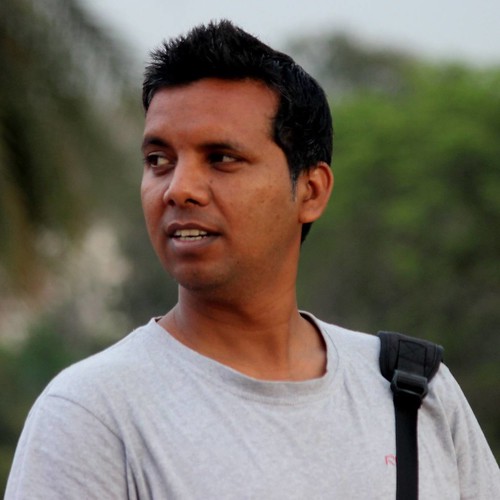
Anjum Alam
Anjum Alam, Rural Development Professional: After primary education in village school in Unnao district of UP, Anjum went to study at Jamiatul Falah, Azamgarh, where he became an Hafiz and later an Aalim. After graduating from Jamiatul Falah, Anjum came to Jamia Millia Islamia to study History.
After post-graduation, however, he started working in social sector. A year later, he went to the National Institute of Rural Development (NIRD), Hyderabad in 2012. For last two years, Anjum has been working with leading development companies that provide skill development to rural youth and is currently serving as Project Manager for his company in Lucknow.
“I am the first graduate (and post-graduate) from my village. If I had not gone to the Madrassa, perhaps I would have not got all this opportunities I have today,” he told TCN.
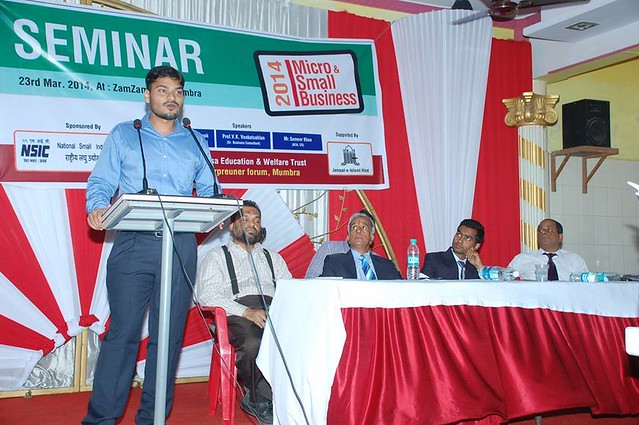
Ziyaul Islam
Ziyaul Islam, IT: Ziyaul Islam studied in Madrassa Noorul Islam, in Sawai Madhopur (Rajsthan) early in his life and later enrolled for the Rajasthan Board school to complete formal education, where he even studied Sanskrit till class 8 as an optional subject.
He later completed Bachelors in Computer Application (BCA) and went on to do MCA as well. For the first eight years of his career, Islam worked in various IT companies as a Software Engineer, Oracle DBA, Sr. Oracle DBA and Lead DBA. He has now launched his own IT firm.
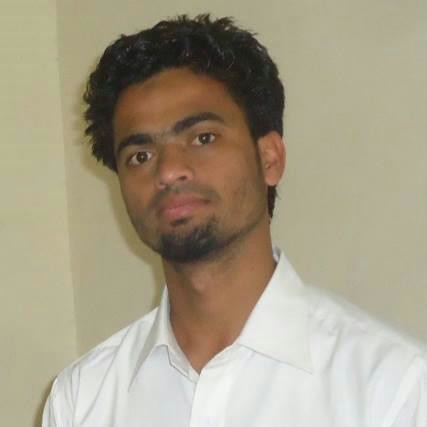
Faisal Husaini
Faisal Husaini, Architect: Originally from Deoria district in UP, Faisal had his primary education from RSS run school “Krishak Saraswati Shishu Mandir.” He then went to Madrassa Jamiatul Falah in Azamgarh to study Alimyat. After graduating from madrassa, Faisal also studied in formal school system at Christian Inter College, Lucknow to complete Senior Secondary in Science. He then took admission in B Arch at Jamia Millia Islamia’s reputed Architecture Faculty, one of the top 10 colleges of Architecture in India. Faisal has just completed B Arch and plans to do M Arch with specialisation.
“The stay in Madrassa Jamiatul Falah was the most important period of my life that shaped my ideas and broadened my views,” he told TCN, adding, “I found teachers more open to be questioned about what they teach.”
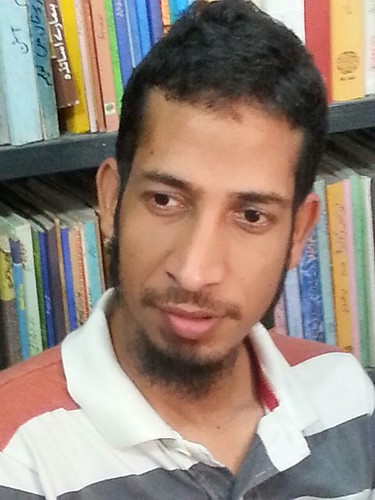
Mahmood Asim
Mahmood Asim, Research Scholar/Journalist/Theatre Activist: Originally from Jaunpur district in UP, Asim studied till class VIII in a formal school, before shifting to Madrassa Maulana Azad Taleemi Markaz Usrahta, Jaunpur. He later went to Jamiat ul Falah where he spent three years to complete course in Almiyat. He later also went to Nadwatul Uloom, Lucknow.
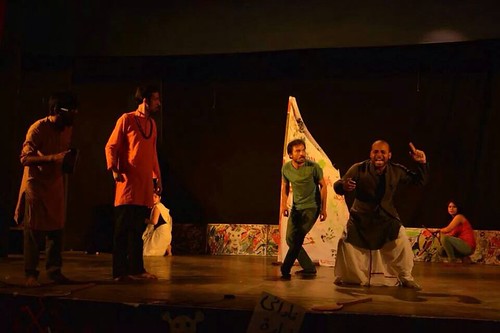
After graduating from Madrassa, Asim came to Jamia Millia Islamia and studied modern Arabic, besides English, media and Sociology during his BA course. He then moved to JNU for MA and is currently enrolled for his M Phil degree. Asim is a Junior Research fellow under the UGC and is doing research on Arabic Journalism in India.
Asim’s interests are varied and besides working as a freelance journalists for several English news portals (including TCN), he has also co-founded a hyper-local news portal in Urdu catering to Azamgarh-Jaunpur area called Hausla.com. Since 2012, he has been associated with Jagiriti Natya Manch and has performed street plays from Delhi to Bihar and also staged plays in several universities across the country.
Najmul Huda Sani, Runs School: Huda was first enrolled at Chashma e Faiz in Madhubani, Bihar. He later went to Nadwatul Uloom, but midway shifted to Jamiat ul Falah to complete Alimiyat in 2001. In 2002, Huda shifted to Delhi’s Jamia Millia Islamia to study BA (Hons) in English, but later shifted to History.
For his masters, however, Najmul Huda chose MA in Comparative Religion and in 2010 cleared UGC’s Junior Research Fellowship (JRF) and wrote M Phil Dissertation on “Between Sacred and Secular: Madrasa Graduates in University System.”
Najmul now runs an English medium school in Kishanganj, Bihar.
>
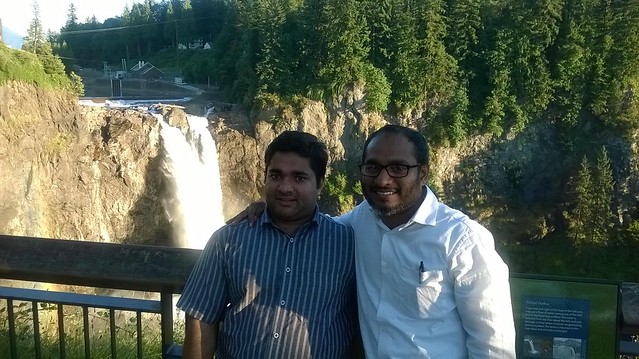
Dr Zubair Hudawi Chekanoor (in white shirt)
Dr Zubair Hudawi Chekanoor, OSD, Department of Arabic, MG University, Kottayam: Dr Zubair went to Darul Huda Islamic University, Kerala as a 10 year old boy and spent next 12 years of his life there. Explaining about how this institution in Kerala works, he told TCN, “It is compulsory in Darul Huda for a student to get the Aalim course certificate, which we call Sanad termed as Hudawi, to complete a BA from a secular university in any of the five subjects – Sociology, Political Science, History, Economics or Literature.”
Zubair took degree in BA Sociology from Osmania University, Hyderabad through Distance mode and then came to JNU for masters. He later also did M Phil and Ph D there. He has presented several researched papers in national and international seminars, besides attending a two month summer school on ‘Religious Pluralism’ at the University of California in 2014, went to UK to on similar multiculturalism and interfaith dialogue in 2012. He has also participated in several programmes in Malaysia, Indonesia, Turkey, UAE, Saudi Arabia and Qatar.

